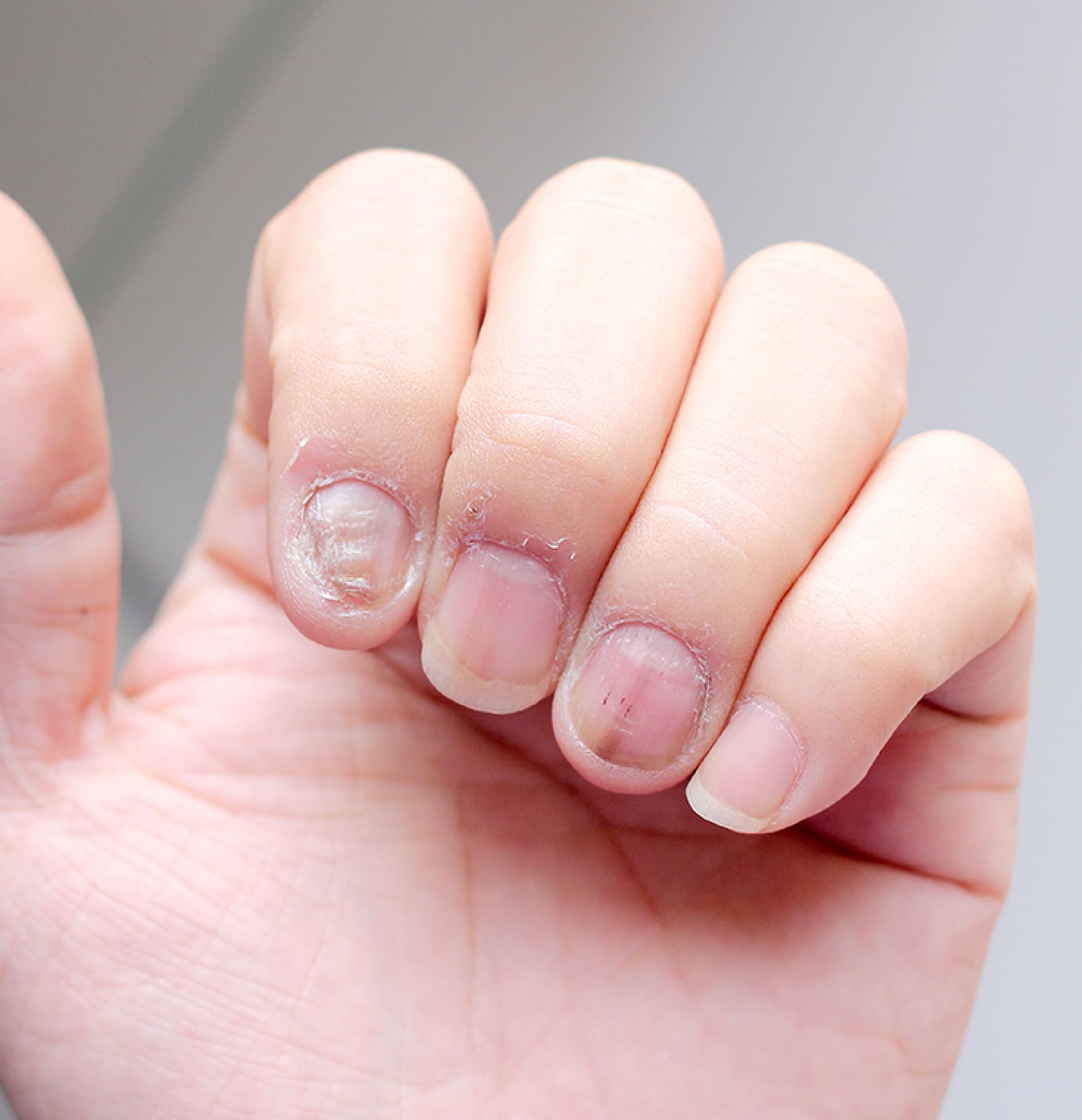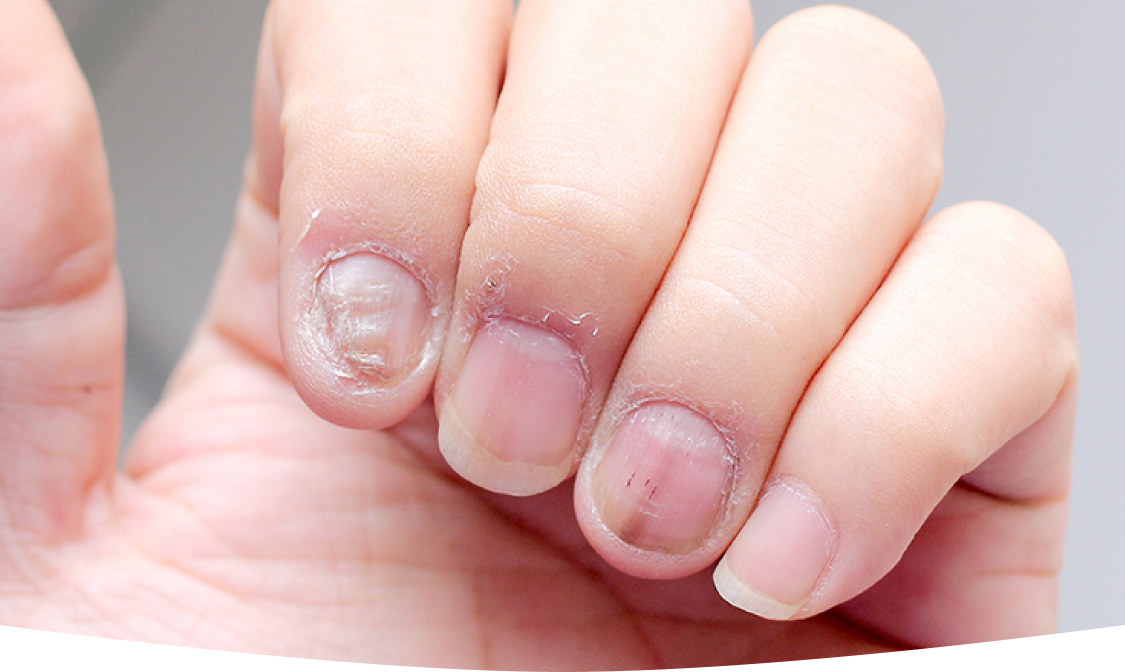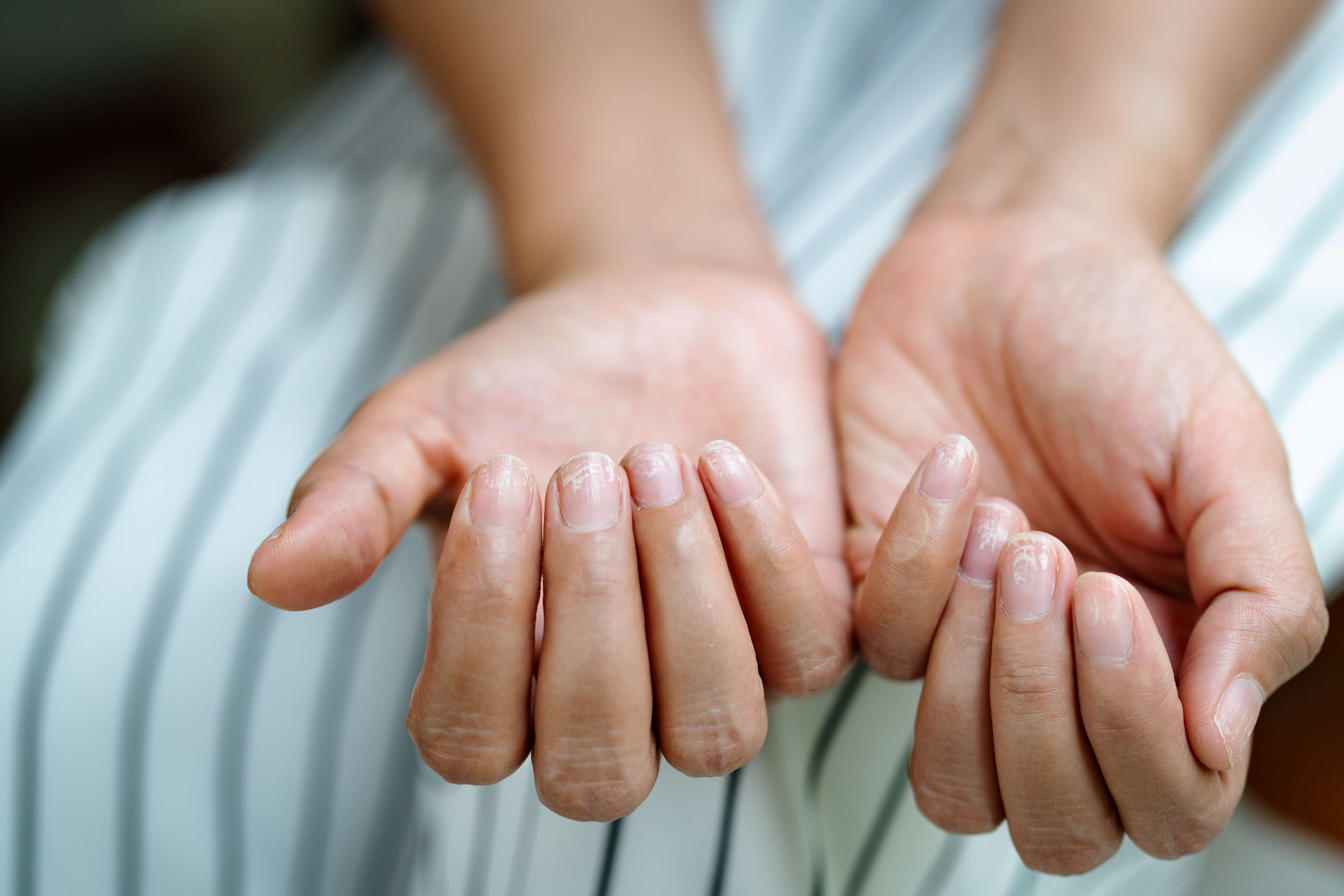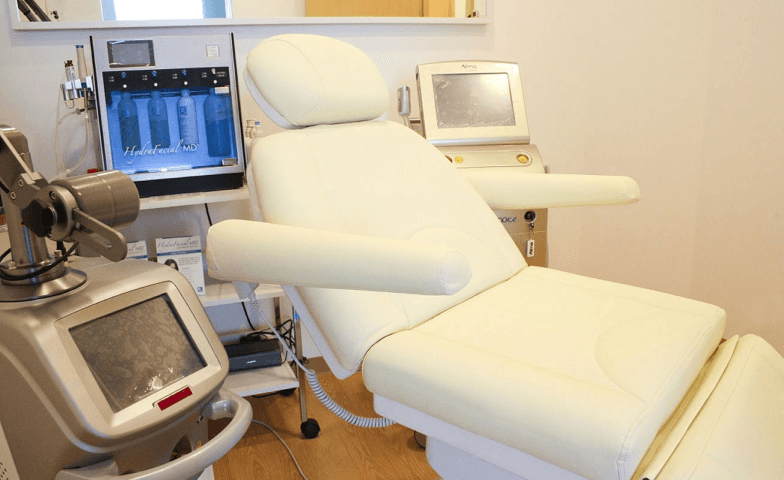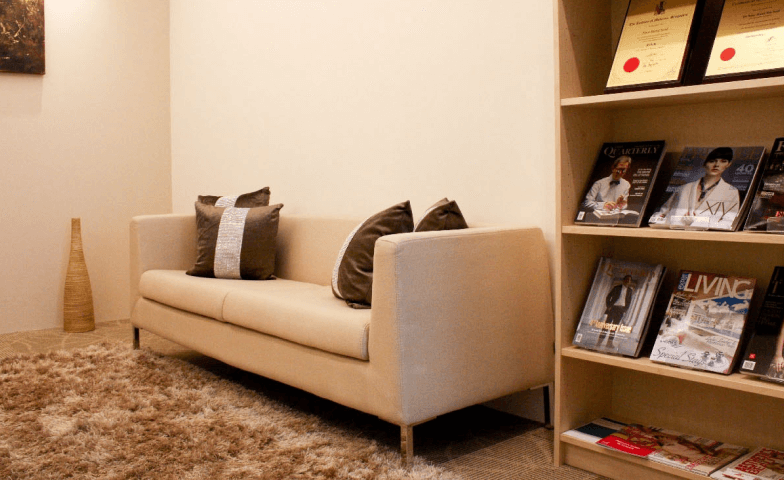Common Nail Problems
Most nail problems are caused by injuries, trimming them incorrectly, infections, and exposure to harsh chemicals and substances. Nail problems can also sometimes be a symptom of a more serious or long-term medical condition.
-
Nail psoriasis
Psoriasis, an autoimmune disorder that usually presents as itchy, reddish plaques with silver scales, can also affect the nails.
-
Onychoschizia
Onychoschizia or brittle splitting nails is a very common nail problem that is usually caused by frequent wetting and drying of the nails or underlying illnesses such as iron deficiency anemia.
-
Onychogryphosis
Overgrown and thick nails usually affecting the big toe is called onychogryphosis and can be caused by several factors such as genetics, injury, problems with circulation, and psoriasis.
-
Ingrown toenails
Sometimes leading to infection, ingrown toenails may be caused by improper trimming of nails, tight socks or shoes, or trauma to the nail.
-
Fungal infections of the nail
These are acquired when there are cracks in the nail and fungi are trapped between the nail and nail bed. Causes include athlete’s foot, sweat, and salon manicures and pedicures.
-
Onycholysis
This happens when either a fingernail or toenail separates from the nail bed. Caused by underlying health conditions, it is usually painless and occurs slowly over time.
-
Paronychia
This is the infection of the nail bed edges. If acute, it is commonly caused by trauma. If chronic, it is usually caused by allergens or irritants.
